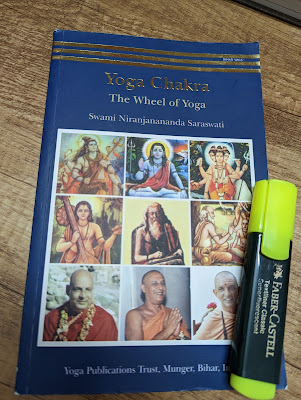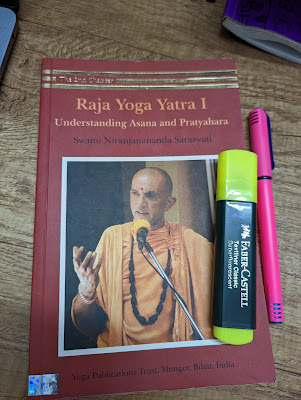Who is the founder of Yoga? How did Yoga evolve? How did the different forms of Yoga come into existence? How are they interlinked with each other?
The answers to these questions can be found in this book. The author takes us on a journey to help the reader understand how Yoga evolved into what it is today through three important periods.
The key revelation for me is the fact that Sage Patanjali is not the founder or creator of Yoga. References to Yoga date back to Satya Yuga, which predates the times of Lord Rama and Krishna.
The three periods, the key contributors and the role of Yoga in each period are well explained.
The purpose of Yoga in the early period was to help people alleviate suffering.
The middle period is the time of Patanjali, Gheranda and Swatmarama when hatha yoga and raja yoga were codified. The objective of Yoga during this period was to balance the pranic and mental behavior. It was quite insightful to learn the difference in the interpretation of asana in hatha yoga and raja yoga.
The present age of Yoga emergence began in the 19th century. The book conveys so beautifully the role of different people involved and their contributions.
The author gives a brief description of the three progressive stages of Yoga. He also recommends certain practices to follow to adopt a Yogic lifestyle. It was a key takeaway for me to learn that the sequence in which Yamas and Niyamas are to be followed matters.
The final chapter talks about the wheel of Yoga - the 3 types of Yoga that one experiences internally (hatha yoga, raja yoga, kriya yoga) and the 3 types of Yoga that one expresses externally (karma yoga, bhakti yoga, jnana yoga).
If you are interested in yoga philosophy, you'd love this book - simple, easy to read and a quick understanding of the evolution of Yoga.


.jpg)























